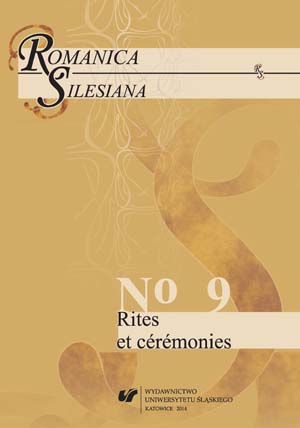El significado del ritual en "La feria" de Juan José Arreola
The Meaning of Ritual in "La Feria" by Juan José Arreola
Author(s): Eduardo E. Parrilla SotomayorSubject(s): Literary Texts
Published by: Wydawnictwo Uniwersytetu Śląskiego
Keywords: fair; carnivalization; sacred and profane rituals; potlatch
Summary/Abstract: This essay revolves around two different conceptions of the ritual interwoven in "La feria" (1963), a novel written by the Mexican writer Juan José Arreola. The first conception stems from the carnivalesque style which is vividly present in the novel. Since the fictionalized fair in honor to Saint Joseph in a small city of Jalisco is a ritual, in some respects similar to the carnival rituals analyzed by M.M. Bakhtin, the author attempts to trace coincidences between them. The second conception is based on the theory of potlatch, a social phenomenon associated with rituals, researched in archaic societies by anthropologist Marcel Mauss. In the analysis of "La feria", a sacred and profane ritual, and the central event that takes place in the plot, the author gives several examples to demonstrate the fictionalization of potlatch conveyed through the polyphonic juxtaposition of voices within the novel. Taking into account the definition of ritual created by anthropologist Roy A. Rappaport, on the other hand, the author supports the idea of the existence of universal equivalencies in its practices, and attains to justify an inherent relationship between both, the spirit of the fictional fair, and the spirit of carnival rituals examined by Bakhtin. In general terms, the main purpose of the essay is to explore how the social and aesthetic meanings are interwoven in the ritual of "La feria".
Journal: Romanica Silesiana
- Issue Year: 2014
- Issue No: 9
- Page Range: 37-46
- Page Count: 10

